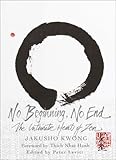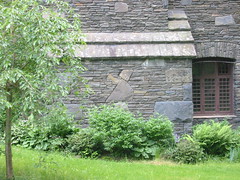Japanese Zen Gardens
Article by Russ Chard
Japanese Zen Gardens-An Article By Russ Chard
Zen tradition in Japanese gardens, together with Shinto are a very large part of Japanese gardening. It is because of these predominant traditions a Japanese garden is a place of contemplation and reflection and a visitors state of mind should reflect this when visiting one. It is important to fully understand these principles when visiting a Japanese or Japanese Zen garden.
The history of Japanese Zen gardens is easily traceable. Zen Priests were Chinese in origin and between 1185 and 13333 they began to influence Japanese residential buildings and gardens. China was such an influential player both politically, militarily and culturally during this period. During the period 1185AD to 1333AD Chinese Zen priests became much more influential in everyday life and belief processes in Japan.
The Zen priests brought about changes to Temples and residential buildings meaning that gardens were designed to be viewed from the inside of a building- visual appeal was a necessity- to view from inside and appreciate a Japanese Zen garden's beauty in one view was considered uncluttered and meant that the garden was simple and without many components.
These 'single view' gardens were designed by the priests who were known as Ishitateso or 'Rock Placing Monks' in English.
In the period 1333 to 1568 considered by many historians to be 'the golden age ' of Japanese gardens, Zen Buddhism began to heavily influence Japanese gardens. A signature of these types of gardens is using groups of rocks to represent mountains or waterfalls. White sand was used to create the illusion of flowing water. This is known as 'Dry Water'.
Groups of rocks were used to represent mountains and the general landscape and sand or a type of gravel would be used in the garden design to portray the sea or large bodies of water. Ponds are never used in Japanese Zen gardens.
Japanese Rock gardens are amongst some of the most beautiful examples of thes! e serene havens. Each rock and stone has a reason for being where they are and without getting too complicated the types of stones and rocks used and the reasons why are numerous.
One of the most popular types of Japanese garden is called a 'Karesansui' garden. In English this word means 'dry mountain stream' and that is why these types of garden are known as 'Dry' gardens. They are heavily influenced by Zen Buddhism. They are peaceful, simple and waterless. Rocks are used and sand is raked to make it look like the sea.
Many hundreds of years ago this type of garden was built by 'Senzui Kawarami'- in English - 'Mountain, stream and riverbed people'. They were master craftsman in building these Zen influenced gardens, that originated according to most scholars in China.
The great thing is you can build a Japanese Zen garden in a small space at home fairly simply, all you need is a space however large or small as this type of Japanese Zen garden is compact and very popular with some fine examples all over the world. It is even possible to buy 'table top' Japanese Zen gardens...ideal for your office desk?!
To find out more about Japanese and Zen Gardens CLICK HERE
About the AuthorRuss Chard lives in the UK and is a Japanese and Zen garden enthusiast who has written on the subject over the last 5 years.
Website: http://www.japzengardens.org
Zen Buddhist Chanting

No Beginning, No End: The Intimate Heart of Zen
 In No Beginning, No End, Zen master Jakusho Kwong-roshi shows us how to treasure the ordinary activities of our daily lives through an understanding of simple Buddhist practices and ideas. The author's spontaneous, poetic, and pragmatic teachings—so reminiscent of his spiritual predecessor Shunryu Suzuki (Zen Mind, Beginner's Mind)—transport us on an exciting journey into the very heart of Zen and its meaningful traditions. Because Kwong-roshi can transmit the most intimate thing in the most accessible way, we learn how to ignite our own vitality, wisdom, and compassion and awaken a feeling of intimacy with the world. It is like having a conversation with our deepest and wisest self.
In No Beginning, No End, Zen master Jakusho Kwong-roshi shows us how to treasure the ordinary activities of our daily lives through an understanding of simple Buddhist practices and ideas. The author's spontaneous, poetic, and pragmatic teachings—so reminiscent of his spiritual predecessor Shunryu Suzuki (Zen Mind, Beginner's Mind)—transport us on an exciting journey into the very heart of Zen and its meaningful traditions. Because Kwong-roshi can transmit the most intimate thing in the most accessible way, we learn how to ignite our own vitality, wisdom, and compassion and awaken a feeling of intimacy with the world. It is like having a conversation with our deepest and wisest self.Jakusho Kwong-roshi was originally inspired to study Zen because of zenga, the ancient art of Zen calligraphy. Throughout this book he combines examples of his unique style with less well-known stories from the Zen tradition, personal anecdotes—including moving and humorous stories of his training with Suzuki-roshi—and his own lucid and inspiring teachings to draw all readers into this intimate expression of the enlightening world of Zen: the world of who we are.
From the Hardcover edition.In No Beginning, No End, Zen master Jakusho Kwong-roshi shows us how to treasure the ordinary activities of our daily lives through an understanding of simple Buddhist practices and ideas. The author's spontaneous, poetic, and pragmatic teachings—so reminiscent of his spiritual predecessor Shunryu Suzuki (Zen Mind, Beginner's Mind)—transport us on an exciting journey into the very heart of Zen and its meaningful traditions. Because Kwong-roshi can transmit the most intimate thing in the most accessible way, we learn how to ignite our own vitality, wisdom, and compassion and awaken a feeling of intimacy with the world. It is like having a conversation with our deepest and wisest self.
Jakusho Kwong-roshi was originally inspired to study Z! en becau se of zenga, the ancient art of Zen calligraphy. Throughout this book he combines examples of his unique style with less well-known stories from the Zen tradition, personal anecdotes—including moving and humorous stories of his training with Suzuki-roshi—and his own lucid and inspiring teachings to draw all readers into this intimate expression of the enlightening world of Zen: the world of who we are.
From the Hardcover edition.
List Price: $ 18.95 Price: $ 18.95


Comments
Post a Comment